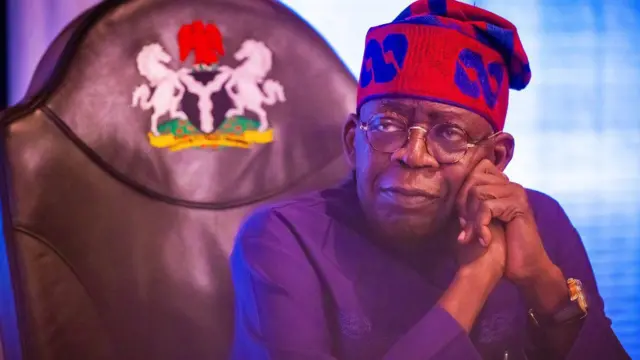It can be a bit puzzling when you think about the president’s salary. After all, the president is the leader of a nation, so who exactly is paying for it? This question isn’t just about money; it’s about our duty as citizens, how national budgets work, and how transparent our governments are.
“Who pays the president’s salary?” It sounds simple, but it’s a bit more complex. The answer involves more than just a paycheck; it’s about laws, taxpayer money, and government finances.
In this article, we’ll look at who pays the president’s salary and help you understand this topic better.
Table of contents
- Who is the President of a Country?
- How is a President Elected?
- How Much is the Salary of the Nigerian President?
- Who Pays the Nigerian President’s Salary?
- A Comprehensive List of Salaries of Head of States
- Comprehensive List of Salaries of Head of States
- What Other Paid Allowances Does the President Earn?
- Do Presidents Get Paid for Life?
- Do Taxpayers Pay the President’s Salary?
- Who is the Lowest-Paid President in the World?
- Which Country has the Highest-Paid President?
- Frequently Asked Questions on Who Pays President Salary
- Conclusion
- References
- Recommendations
Who is the President of a Country?
The president of a country is usually seen as the most powerful and influential person. They represent the country both at home and abroad, often acting as the face of the nation in diplomatic matters and official events.
The president also serves as the commander-in-chief of the armed forces. This means they have the authority to make important military decisions and ensure the country’s safety.
How is a President Elected?
Becoming a president isn’t the same in every country. In some places, people vote directly in national elections. In others, an electoral college or parliament makes the choice. The exact process depends on each country’s rules and laws.
The president’s role is vital because they have much power and responsibility. Their decisions can shape the country’s future, from the economy to foreign relations. A good president can bring prosperity and stability, while a bad one can lead to problems and unrest.
How Much is the Salary of the Nigerian President?
The president currently earns about ₦ $14.058 million a year, which is around $35,000. This includes different allowances, such as hardship and constituency allowances.
But the salary is just a part of the total package. The president also gets many perks, like free housing, transportation, security, and healthcare. These benefits add a lot of value to the overall package.
Read: How To Get Luxembourg Student Visa From Nigeria | Requirements, Fees and Eligibility
Who Pays the Nigerian President’s Salary?
The president’s salary is paid from the national treasury, which means taxpayers fund it. This money is part of the government’s budget, which the National Assembly approves.
As per Chapter 5, Part 1, Section 84 of the Nigerian Constitution, the President’s salary is determined by the Revenue Mobilization Allocation and Fiscal Commission (RMAFC). This commission is also responsible for setting the salaries of other public officers in Nigeria.eria.eria.
Below is a little breakdown of how this works:
- National Budget: Every year, the Nigerian government prepares a budget that lists all planned expenses, including salaries for public officials. The National Assembly reviews and approves this budget.
- Taxpayer Money: The taxes collected from citizens and businesses pay for the president’s salary and other government expenses. These taxes include income tax, corporate tax, and VAT (Value Added Tax).
- Legal Framework: The president’s salary and allowances are set by the Revenue Mobilization Allocation and Fiscal Commission (RMAFC).
A Comprehensive List of Salaries of Head of States
President and Vice President
According to a document from RMAFC, the Nigerian president and vice president each earn a little over a million naira per month.
The president’s monthly salary is at least N1,171,568, which includes his basic salary and a few public allowances. This adds up to an annual salary of N14,058,820.
The vice president makes at least N1,010,524 monthly, totaling N12,126,290 a year. The president and vice president get yearly accommodation and furniture allowances every four years. They also receive monthly allowances for vehicle fuel, newspapers, utilities, entertainment, and domestic staff.
Governors
Like the President, governors’ salaries in the RMAFC’s document include a basic salary plus a few public allowances.
Each governor gets at least N648,580.62 every month. This total comes from their basic salary, hardship, and consistency allowance. For the whole year, a governor’s salary adds up to N7,782,967.50.
Governors receive a yearly accommodation allowance and a furniture allowance every four years in addition to their salary. Additionally, they have unwritten monthly allowances for fueling vehicles, newspapers, utilities, entertainment, and domestic staff.
Ministers, Directors, Permanent Secretaries, Judges
Ministers and cabinet members, like the Secretary to the Government of the Federation, earn at least ₦650,136.65 every month. Ministers of state make slightly less, with a monthly salary of ₦628,056.91.
Directors and commissioners of agencies, such as INEC, receive ₦617,881.68 each month. Special assistants, including speechwriters, get ₦590,957.81 monthly. Permanent secretaries take home the same amount as directors and commissioners.
The Chief Justice of Nigeria (CJN) has a monthly salary of at least ₦560,662.16, not including various allowances, which are not publicly disclosed.
Justices of the Supreme Court and the President of the Court of Appeal also earn a minimum monthly salary of ₦ 560,662.16. Meanwhile, judges of the Court of Appeal and chiefs of the respective high courts have a monthly salary of ₦731,657.66.
Also, read: How To Apply For New Zealand Student Visa From Nigeria | Eligibility and Requirements
Comprehensive List of Salaries of Head of States
| POSITION | ANNUAL VALUE | MONTHLY VALUE |
|---|---|---|
| President | 14,058,820 | 1,171,568 |
| Vice President | 12,126,290 | 1,010,524 |
| Minister/SGF/HOS/Chairmen of Constitutional Bodies | 7,801,640 | 650,137 |
| Minister of State/ Member of Constitutional Bodies | 7,536,683 | 628,057 |
| Special Adviser to include Other Categories like Speech Writers | 7,091,494 | 590,958 |
| Director-General/ Auditor-General/ Permanent Secretary/ Accountant-General/ Executive Sec./ Chief Executives of Parastatals, Agencies and Govt. Comp/INEC Residential Elect. Commissioners | 7,414,580 | 617,882 |
| Chief justice of Nigeria | 6,727,945 | 560,662 |
| Justice of the Supreme Court/President, court of Appeal | 10,899,284 | 560,662 |
| Judges of Court of Appeal/ Chief Judge, Federal High Court/ Chief Judge, FCT/ President, National Industrial Court, Grand Khadi FCT Sharia Court of Appeal/ President, FCT Customary Court of Appeal/ Chief Judge of a State/ Grand Khadi, State Sharia Court of Appeal/ President, State Cust. Court of Appeal | 8,779,892 | 731,658 |
| Judges of Federal High Court/ Judge of the National Industrial Court/ Judge of the FCT High Court/ Judge of the State High Court/ Khadi FCT Sharia Court of Appeal/ Judge FCT Customary Court of Appeal/ Khadi, State Sharia Court of Appeal/ Khadi, State Sharia Court of Appeal/Judge, State Court of Appeal | 7,940,820 | 661,735 |
| Senate President | 8,694,849 | 724,571 |
| Deputy Senate President | 8,082,084 | 673,507 |
| Senator | 12,766,320 | 1,063,860 |
| Speaker, House of Representatives | 4,954,220 | 412,852 |
| Deputy Speaker, House of Representatives | 4,574,069 | 381,172 |
| Member, House of Representatives | 9,529,038 | 794,087 |
| State Governor | 7,782,968 | 648,581 |
| Deputy Governor | 7,392,753 | 616,063 |
| SSG/Commissioner/Chairman. State Civil Service Commission/ State Judicial Service Commission of the Federal Capital Territory, State Independent electoral Commission/ Local Government Service Commission; & Chief of Staff to the Governor | 4,880,871 | 406,739 |
| Special Adviser/ member of State civil Service Commission/ State judicial Service commission of the Federal Capital Territory/ State Independent Electoral Commission/ Local Government Commission | 4,562,902 | 380,242 |
| Director-General/Permanent Secretary/Accountant-General/Auditor-General for Local Government | 4,492,332 | 374,361 |
| Speaker, State House of Assembly | 2,049,844 | 170,820 |
| Deputy Speaker, State House of Assembly | 1,807,478 | 150,623 |
| Member, State House of Assembly | 2,473,866 | 206,156 |
| Local Government Chairman | 3,542,417 | 295,202 |
| Vice Local Government Chairman | 3,326,918 | 277,234 |
| Supervisory Councilor/ Secretary of local Government | 2,964,296 | 247,025 |
| Special Adviser of Local Government | 2,964,296 | 247,025 |
| Legislative Leader of Local Government Council | 3,123,505 | 260,292 |
| Deputy Legislative leader of Local Government Council | 3,094,200 | 257,850 |
| Councilor of Local Government Council | 2,964,296 | 247,025 |
What Other Paid Allowances Does the President Earn?
The other paid allowances the Nigerian president earns include:
- Hardship Allowance: This is extra money given for working in dangerous conditions. It’s meant to compensate for the risks involved.
- Constituency Allowance: This is money set aside to solve problems in different areas of the country. Initially for Senators and House Representatives, the President also gets a share to address issues nationwide.
- Leave Allowance: To avoid going broke while on leave, the President gets a stipulated amount of money that might be used for relaxing in the Bahamas or for medical trips to London.
Those who read this article also read: Federal Government Scholarship For Nigerian Students | A Guide To Win FSB Award
Do Presidents Get Paid for Life?
Many countries give their former presidents a lifelong pension and other benefits. This ensures they are financially secure and treated with respect after their service to the country. The details of these benefits can be quite different depending on the country.
In Nigeria for instance, former presidents enjoy the following benefits
- Pension
- Allowances
- Medical Care
- Security
- Office and Staff
In the US also, former presidents enjoy the following benefits:
- Pension
- Office Allowance
- Travel and Security
- Medical care
Do Taxpayers Pay the President’s Salary?
Taxpayers fund the president’s salary. In most countries, the president’s salary comes from the national budget, which is paid for by taxpayers. This means that the pay and benefits for public officials, including the president, come from the money citizens pay in taxes.
It’s part of the government’s job to use public funds for important services and roles in running the country.
Who is the Lowest-Paid President in the World?
Carlos Manuel Vila Nova is the fifth and current president of São Tomé and Príncipe, since 2 October 2021.
According to Wikipedia, his annual salary as president of a country is $2,930, while his vice president earns about $2,100 annually. This makes him the lowest-paid president in the world.
Which Country has the Highest-Paid President?
According to Wikipedia, Saudi Arabia has the highest-paid president. Mohammed bin Salman made an annual income of $9,600,000,000 as president in 2024.
Frequently Asked Questions on Who Pays President Salary
The president’s salary is typically decided by law and can be changed from time to time by the government. It usually includes a base pay along with different allowances and benefits.
Yes, the president often gets extra perks like housing, travel, security, and sometimes even extra money for entertainment and other expenses.
National law states that former presidents usually get pensions and other perks after they leave office.
In most cases, the legislature must approve any changes to the president’s salary. To avoid conflicts of interest, these changes usually take effect after the current term.
Conclusion
Are you curious about who pays the president’s salary in Nigeria? It’s pretty simple: taxpayers cover it through the national budget. This money is part of what the government spends, and lawmakers approve it.
The law sets the president’s salary, along with various extras, and the package includes perks like housing, travel, and security to support their role effectively.
References
- ICIRNigeria.org – Details of Nigerian President, VP, governors, ministers, aides salaries
- Fij.ng – What Nigeria’s President, Senators Really Earn
- En.Wikipedia.org – List of salaries of heads of state and government






